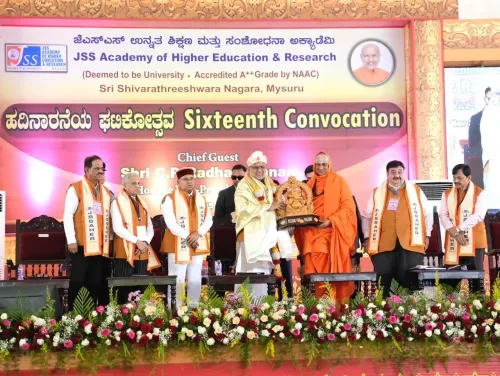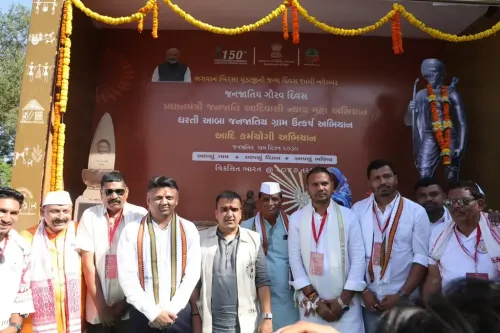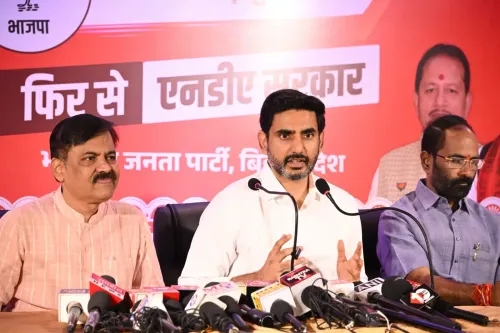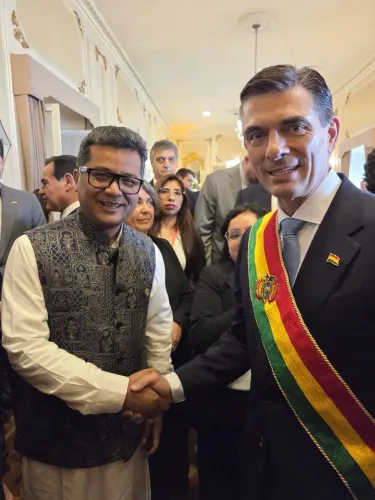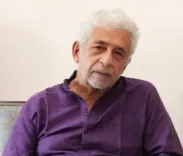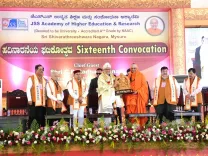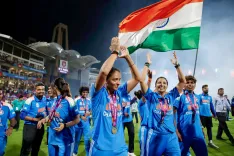Gujarat UCC Committee Conducts Crucial Meeting in Surat, Invites Input
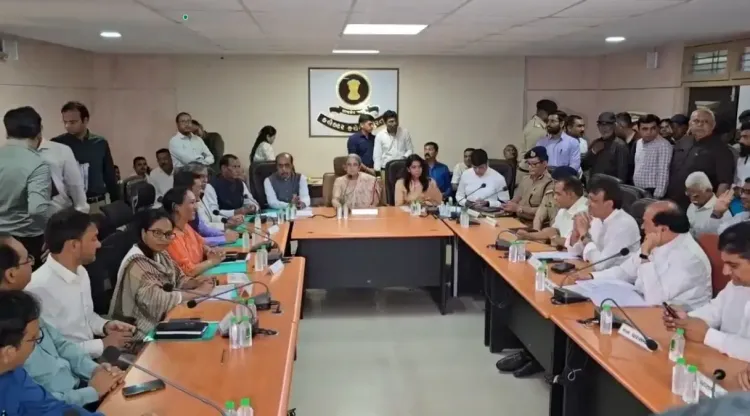
Synopsis
Key Takeaways
- Gujarat initiates discussions on UCC.
- Uniform personal laws for all citizens.
- Committee chaired by Surat District Collector.
- Expert committee formed for UCC framework.
- UCC aims to promote gender equality and social justice.
Surat, April 3 (NationPress) The Gujarat government commenced discussions on the implementation of the Uniform Civil Code (UCC) on Thursday, a legal reform designed to establish uniform personal laws for all citizens, regardless of religious affiliation, during a significant committee meeting held in Surat.
The gathering was chaired by the Surat District Collector, where representatives from various organizations offered their insights and recommendations regarding the UCC. Notable attendees included Justice Ranjana Desai (Retired Supreme Court Judge and Chairperson of the UCC Committee), Advocate R.C. Koddekar (Committee Member), former Vice-Chancellor Dakshesh Thakar (Committee Member), and social activist Geetaben Shroff (Committee Member).
The discussions were centered on grasping diverse viewpoints, apprehensions, and suggestions from multiple stakeholders ahead of drafting a comprehensive proposal.
Gujarat is among the proactive states pursuing the implementation of the UCC, following Uttarakhand, which recently became the first state in India to enact a UCC bill.
Previously, the Gujarat government announced the establishment of an expert committee tasked with examining and recommending a framework for UCC implementation. This committee has been soliciting feedback from legal experts, social organizations, and religious entities to ensure a well-rounded and inclusive approach.
The Uniform Civil Code (UCC) aims to establish a common set of laws governing marriage, divorce, inheritance, and adoption for all citizens, irrespective of religious beliefs.
Currently, personal laws in India vary based on religion—Hindu, Muslim, Christian, and various other communities have distinct legal systems. The UCC aspires to create uniformity, promote gender equality, and achieve social justice in personal laws, thereby minimizing discrimination and legal complexities. By consolidating multiple personal laws into a single legal framework, the UCC will guarantee equal treatment for all citizens, aiding in the elimination of gender-based discrimination prevalent in certain religious personal laws, particularly in issues surrounding marriage, divorce, and inheritance.
Through the unification of personal laws, the UCC aims to foster national integration and mitigate communal legal disparities.
A singular code for everyone will enhance the efficiency of legal proceedings and decrease litigation stemming from conflicting personal laws. The Gujarat government, via its expert committee, will persist in gathering opinions from diverse communities, legal specialists, and social organizations before finalizing a proposal for UCC implementation. Once the recommendations are solidified, the government may present a bill in the Gujarat Legislative Assembly for further discussion and approval.

